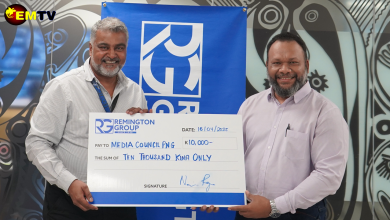EU leaders seek unity as Britain heads for the exit

By Alastair Macdonald and Philip Blenkinsop
BRUSSELS (Reuters) – Leaders of the European Union agreed the outlines on Friday of a common accord to rally popular and political support for a bloc wracked with division and self-doubt in the wake of Britain’s vote to leave.
At a summit in Brussels, diplomats said the 27 leaders tried to put behind them a furious row with Poland that had disrupted proceedings the previous day and handed guidelines to their staffs to prepare a solemn declaration of unity which they will all sign in Rome on the bloc’s 60th birthday in two weeks time.
Germany’s Chancellor Angela Merkel talks to Sweden’s Prime Minister Stefan Lofven during a European Union leaders’ summit in Brussels, Belgium March 10, 2017. REUTERS/Francois LenoirPoland’s vain lone battle to block a second term for summit chair Donald Tusk, a former Polish premier and arch-foe of the current ruling party leader, was symptomatic of growing friction between the west and poorer, ex-communist east as Brexit leaves a hole in EU subsidy budgets.
But people in the room said Prime Minister Beata Szydlo took pains to be polite and cooperative after Thursday’s sharp exchanges with the likes of French President Francois Hollande, who had effectively accused her of ingratitude for EU grants to Poland. “She was a different person today,” one diplomat said.
Tusk, who promised to try and heal his personal rift with his successors in Warsaw, said: “The attitude was much more constructive.” The atmosphere was, he said, even “optimistic”.
Chancellor Angela Merkel, who dismissed accusations from a Polish minister that the EU was run by “German diktat”, was more measured but concluded: “We are united in diversity.”
Merkel faces a eurosceptic challenge at a September election, and Hollande will step down after an election next month where far-right leader Marine Le Pen is set to make a strong showing.
DIVISIONS
Spooked by Brexit, a process the absent British Prime Minister Theresa May will trigger this month, Paris and Berlin see faster EU integration as the way to security and prosperity, thereby counteracting the rise of anti-EU nationalists.
But Poland and others enjoying a sovereignty they secured only after the Cold War are suspicious of that and of a push by westerners to move ahead in a “multispeed Europe”.
(L-R) Belgium’s Prime Minister Charles Michel, Netherlands Prime Minister Mark Rutte and Luxembourg’s Prime Minister Xavier Bettel arrive together at a European Union leaders summit in Brussels, Belgium, March 10, 2017. REUTERS/Yves HermanSzydlo, who admitted to an emotional exchange with Hollande over subsidies, told reporters Warsaw would not accept a Rome Declaration that divided Europe into two speeds.
Hollande and Merkel, as well as EU chief executive Jean-Claude Juncker, all stressed, however, that a repetition of existing possibilities for some countries to cooperate more in certain areas — such as the euro currency — should not mean the creation of permanent divisions to exclude some states.
Several diplomats from former communist states, of which Poland is by far the biggest in the bloc, said that their leaders were happy with proposals to include elements of “multispeed” language in the Rome text and that this would be balanced by assurances of equal treatment for all countries.
Among priorities for closer cooperation for Germany, France and others is defence, prompted in part by concerns that U.S. President Donald Trump may scale back Washington’s support for Europeans in the face of Russian ambitions. Differences between Paris and Berlin have held back closer integration on the euro.
Italian Prime Minister Paolo Gentiloni, who will host the summit marking 60 years of the Treaty of Rome, said officials would now work on a short draft text reflecting four priorities for the Union to serve its members better for the next decade: security; economy; social welfare; and defence.
The trickiest issues to reconcile, diplomats said, could be finding common language on social issues and the possibility of extending membership to other eastern states in the Balkans.
Britain’s vote last year to leave the Union has encouraged nationalists elsewhere. Juncker, the European Commission president, said, however, that polling evidence suggested that it had also bolstered public support for the EU: “Brexit is not the end,” he said. “I regret it. We continue.”
European leaders attend the EU Summit in Brussels, Belgium, March 10, 2017. REUTERS/Dylan Martinez(Additional reporting by Gabriela Baczynska, Robin Emmott, Francesco Guarascio, Waverly Colville, Jan Strupczewski and Robert-Jan Bartunek; Editing by Hugh Lawson)
Copyright 2017 Thomson Reuters. Click for Restrictions.






